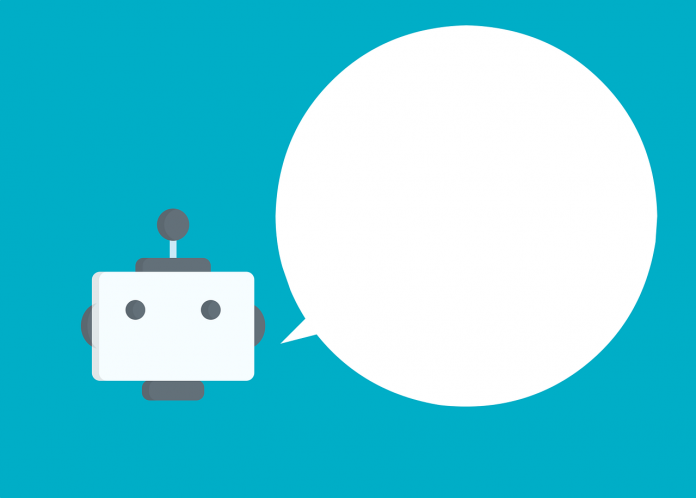Chatbots can support language learning, but still have several challenges to overcome before they can take the place of teachers or fellow students, according to researchers at the University of Hong Kong.
Chatbots that simulate human conversation using either text or voice are an increasingly common feature of online interactions and have also been used to support English language learners. In their review, Huang et al found most of the studies on their use were conducted in China, with a few in North America, and although chatbots were used in both elementary and secondary schools, their use was predominantly in higher education.
Chatbots, generally accessed either via the web or mobile messenger apps, can exchange dialogue as though talking with a friend. Their use in an educational setting, especially with minors, needs additional settings and controls. The web- based Cleverbot responsibly warns general users that it ‘may not be suitable for children’ and ‘can seem rude or inappropriate’, reminding the user that it ‘cannot mean anything it says’. Others, however, such as the messenger- based Replika, suggest forming ‘an actual emotional connection’.
Still, a suitably chosen and used chatbot can become a student’s ‘knowledgeable friend’, a tireless companion, always available. Unlike real classmates, a chatbot can be relied on to share the student’s personal interests and students tend to be less nervous talking to chatbots, which can build confidence.
Apart from open-ended dialogue, a chatbot can provide repetitivepracticeandrole-playing opportunities that simulate real life, such as booking a restaurant. They can also provide a general helpline for language queries and recommend resources.
There are a number of limitations for developers to improve, however. Chatbots currently do not have a natural-sounding human voice, and both audio and text lack emotion and visual cues that would normally sustain interest.
If the student makes mistakes, such as misspelling a word, chatbots tend to be unforgiving and may reply with nonsense. Despite being easy to access, the cognitive load of following the unnatural voice which may be combined with animations can be counter-productive to learning.
With the rapid development of artificial intelligence, however, it’s likely that all these barriers will fall at some point, putting an end to the final major drawback – that the novelty just tends to wear off.
REFERENCE
- Huang, W, Hew, K F and Fryer, L K (2021): ‘Chatbots for language learning – Are they really useful? A systematic review of chatbot-supported language learning’, Journal of Computer Assisted Learning; https://doi-org.libezproxy.open.ac.uk/10.1111/jcal.12610





